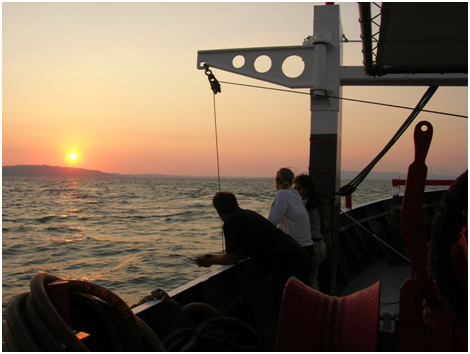Un nuovo progetto finanziato dalla Commissione Europea nell’ambito del programma Horizon 2020 contribuirà alla sostenibilità a lungo termine di EMSO ERIC, Infrastruttura Europea costituita da osservatori sottomarini multidisciplinari dedicati allo studio e al monitoraggio dei mari europei
Prende il via oggi, con un Kick Off Meeting a Roma, EMSO-Link, il nuovo progetto finanziato dalla Commissione Europea come parte della strategia di Horizon 2020 per le infrastrutture di ricerca.
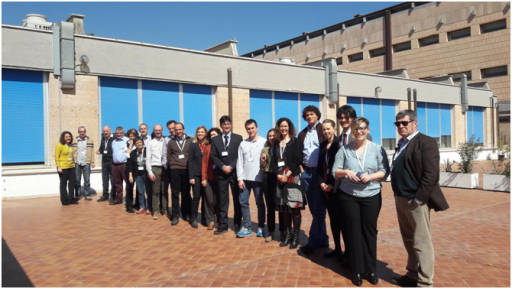
Il nuovo progetto è coordinato da EMSO ERIC, Consorzio Europeo che si occupa della gestione della Infrastruttura di Ricerca EMSO (Osservatorio Multidisciplinare Europeo dei fondali marini e della colonna d’acqua) e vede l’Istituto Nazionale di Geofisica e Vulcanologia (INGV) tra i partner.
“EMSO-Link si prefigge di accelerare l’organizzazione e la piena operatività del Consorzio, quale centro di coordinamento degli osservatori di EMSO, permettendo l’accesso fisico e virtuale agli stessi osservatori e ai dati dell’infrastruttura Europea, costituita da osservatori sottomarini multidisciplinari dedicati allo studio e al monitoraggio dei mari europei, EMSO-Link contribuirà alla sostenibilità a lungo termine di EMSO ERIC”, spiega Laura Beranzoli, responsabile INGV del progetto.
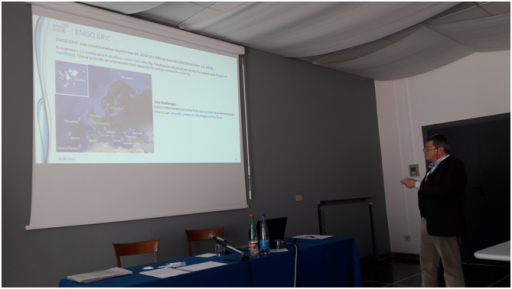
“Coordinare ed espandere l’attuale rete di membri di EMSO ERIC, attraendo altri paesi con le rispettive comunità scientifiche,” afferma Paola Materia, Project Manager di EMSO-Link, “e incrementare le relazioni con iniziative analoghe e con infrastrutture di ricerca complementari, è l’impatto atteso dal progetto”.
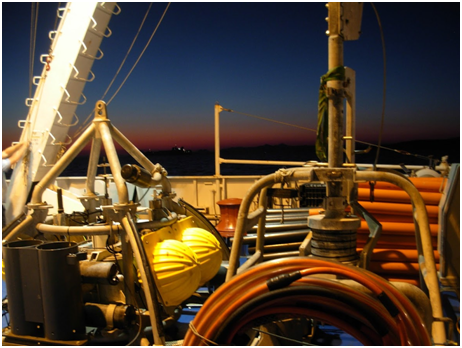
EMSO-Link si dedicherà anche ad accrescere l’effettivo coinvolgimento di potenziali utenti come operatori nel settore del monitoraggio e della protezione dell’ambiente marino, nell’industria, nel mondo accademico e nella formazione, mediante azioni di sensibilizzazione.
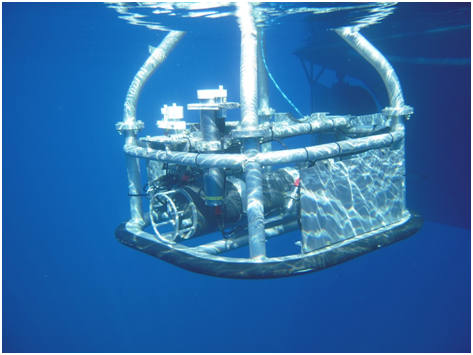
Questo progetto consoliderà il contributo di EMSO ERIC alla crescita economica e all’innovazione europea, attraverso l’implementazione di una potente piattaforma innovativa per le tecnologie marine, al servizio e in cooperazione con l’industria e le piccole medie imprese.
EMSO (http://www.emso-eu.org, European Multidisciplinary Seafloor and water-column Observatory) è una Infrastruttura di Ricerca a scala europea nel campo delle scienze ambientali. E’ stata fondata in accordo con il piano d’azione del Forum di strategia europea per le infrastrutture di ricerca (ESFRI) e comprende un complesso sistema di osservatori sottomarini per il monitoraggio a lungo termine, anche in tempo reale, dei processi ambientali legati all’interazione tra la geosfera, la biosfera e l’idrosfera. Tale sistema è composto attualmente da undici osservatori sottomarini posizionati su fondali profondi e quattro siti di test in acque basse. Tali osservatori sono dislocati in specifici siti nei mari intorno all’Europa, dall’Artico all’Atlantico e dal Mar Mediterraneo al Mar Nero, formando così una infrastruttura paneuropea ampiamente distribuita.
EMSO ERIC (European Research Infrastructure Consortium) è il Consorzio europeo che gestisce EMSO. L’ERIC dovrà coordinare la fornitura dei servizi ai vari soggetti di interesse provvedendo all’alimentazione, alle comunicazioni, ai sensori e garantendo l’infrastruttura dati necessaria a garantire le osservazioni oceaniche interattive, in continuo, ad alta risoluzione ed in tempo quasi-reale. I dati raccolti dagli osservatori coinvolgono una vasta gamma di aree di ricerca tra cui biologia, geologia, chimica, fisica, ingegneria ed informatica e nei più diversi scenari dall’ambiente polare a quello subtropicale, garantendo così una vasta multidisciplinarietà e interdisciplinarietà.
I Paesi membri di EMSO ERIC sono: Italia (che ospita la sede legale), Francia, Spagna, Inghilterra, Irlanda, Grecia, Portogallo e Romania.
The European marine research has a long-term sustainability perspective
A new project funded by the European Commission H2020 is underpinning the long-term sustainability of EMSO ERIC, the pan-European distributed Research Infrastructure composed of fixed point open ocean observatories for studying and monitoring the European seas
EMSO-Link, a new project financed by the European Commission (€ 4.3 million) as part of the Horizon 2020 roadmap for the research infrastructures, kicks off today in Rome.
EMSO-Link is leaded by EMSO ERIC – the European Research Infrastructure Consortium charged of the management of the European Multidisciplinary Seafloor and water column Observatory – and is aimed at accelerating the organization and full operation of the consortium as the central hub coordinating EMSO fixed-point open ocean observatories, including physical and virtual access to observatories and data.
The project’s ambition is also to consolidate and expand the current EMSO ERIC membership involving other countries and their respective marine science communities, and to enhance the relations with sister marine initiatives and counterpart/complementary Research Infrastructures.
EMSO-Link is also addressed to increase stakeholders (e.g., marine operators, industry, academia, universities and marine experts) active engagement through a number of awareness raising campaigns.
EMSO-Link will also strengthen the EMSO ERIC contribution to the European economic growth and innovation through the implementation of a powerful marine technologies Innovation Platform serving and cooperating with Industry and Small Medium Enterprises.
The EMSO-Link kickoff meeting takes place in Rome (Italy), at Hotel Villa Eur, 28-29 March 2017.
EMSO (http://www.emso-eu.org/) is a large scale European Research Infrastructure in the field of environmental sciences. It was founded according to the Roadmap of the European Strategy Forum on Research Infrastructures (ESFRI) and comprises a European-scale complex system of systems made up with open ocean observatories for long-term monitoring, also in real time, of environmental processes related to the interaction between the geosphere, biosphere, and hydrosphere. It is presently composed of eleven deep-seafloor observatories and four shallow water test sites deployed in specific sites around European waters, from the Arctic through the Atlantic and the Mediterranean to the Black Sea, thus forming a widely distributed pan-European infrastructure.
The EMSO ERIC (European Research Infrastructure Consortium) is the European institution steering the infrastructure of seafloor observatories. The ERIC shall coordinate the provision of services to various stakeholders, supplying power, communications, sensors, and data infrastructure for continuous, high-resolution, (near-)real-time, interactive ocean observations across a multidisciplinary and interdisciplinary range of research areas including biology, geology, chemistry, physics, engineering, and computer science, from polar to subtropical environments, through the water column down to the abyss. EMSO ERIC members are: Italy (hosting the ERIC legal head-office), France, Spain, United Kingdom, Ireland, Greece, Portugal, and Romania.


